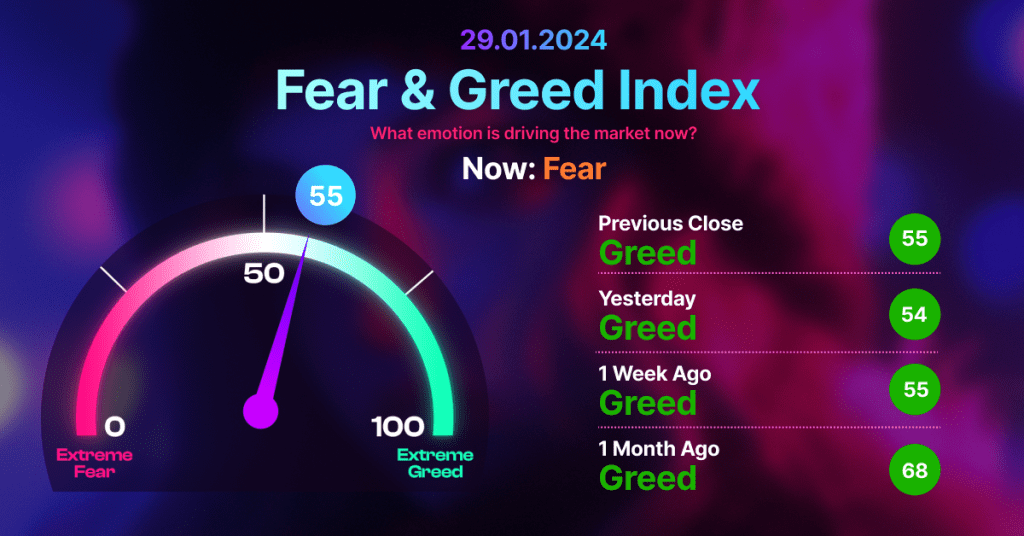Solana DEX Jupiter Surpasses Uniswap in Trading Activity; 18 United States Senators Now Support Crypto; Crypto Ads May Start Appearing on Google!
Solana DEX Jupiter Surpasses Uniswap in Trading Activity
In the past 24 hours, trading volumes on Jupiter, the Solana-based decentralized exchange (DEX), have surged to an impressive $480 million. This surge coincides with increased demand for a new memecoin airdrop and heightened activity in stablecoin swaps.
Jupiter’s trading activity has outpaced Ethereum-based Uniswap, encompassing both V2 and V3 protocols, by $10 million. The combined trading volume of Uniswap’s protocols amounted to $470 million in the last 24 hours, according to CoinGecko data.
A significant portion of Jupiter’s daily trading volume, exceeding $50 million, originated from the buying and selling of “Wen,” a memecoin available to any Solana user who has interacted with Jupiter in the last six months and owners of Solana’s Saga phone.
Developed as an experiment by Jupiter developers, “Wen” has generated considerable market interest in anticipation of the upcoming airdrop of the exchange’s native token, JUP, scheduled for launch on January 31.
While the Wen and JUP excitement is palpable, the majority of trading volumes on Jupiter in the past day involved the exchange of Solana for Circle’s USD Coin (USDC) and Tether (USDT), amounting to $191 million of the total daily volume.
As of now, pre-market JUP tokens are trading at approximately $0.61, based on data from perpetuals on the decentralized exchange Aevo. The estimated total value of the upcoming 1 billion JUP token airdrop could surpass $600 million at current market prices.
This surge in market activity surrounding Wen and JUP coincides with a wave of recently announced airdrops across various projects in the cryptocurrency ecosystem. On January 25, Ethereum scaling solution AltLayer revealed a $100 million airdrop for its users.
Additionally, the multilayer rollup deployer Dymension plans to launch its mainnet in the next few days and will airdrop a total of 70 million DYM tokens — valued at around $210 million at pre-market prices — to eligible users.
18 United States Senators Now Support Crypto, According to Coinbase Lobby Group
As per recent data from Coinbase’s nonprofit advocacy organization, Stand with Crypto, at least 18 senators in the United States express support for cryptocurrencies. The data reveals that Republican senators Cynthia Lumnis and Ted Burr are currently recognized as the most pro-crypto politicians in the U.S. Senate. Lumnis has eight crypto bills and 184 public statements on crypto, while Burr has eight bills and 24 statements.
Following closely are fellow Republicans Ted Cruz and Bill Hagerty, with a combined total of five bills and 92 statements. Among the 18 senators supporting crypto, 14 are Republicans, while only four are Democrats. In contrast, there are a total of 30 senators opposed to crypto, with 23 Democrats, five Republicans, and two Independents among them.
The tracker provides insight into the stance of various senators on cryptocurrency. Notably, Senator John Kennedy has made Bitcoin a core theme of his election campaign and proposed legislation if elected. On the other hand, former President Donald Trump recently announced his disapproval of central bank digital currencies (CBDCs).
President Joe Biden is labeled as “against” crypto on the Stand With Crypto website, having made five public statements that lean toward a negative stance on digital assets. Senator Elizabeth Warren, a prominent figure among crypto opponents, has backed or introduced three anti-crypto bills and issued 76 statements against crypto. Her Digital Asset Anti-Money Laundering Act, reintroduced in July 2023, aims to address noncustodial digital wallets and extend Bank Secrecy Act responsibilities.
Despite support from various lawmakers, Warren’s bill has faced criticism from advocacy groups, arguing that it fails to effectively combat the illicit use of digital assets. In her 2023 re-election campaign, Warren made a “war on crypto” a central theme, asserting that cryptocurrencies contribute significantly to terrorism financing in the Middle East and illicit activities, despite evidence to the contrary.
Crypto Ads May Start Appearing on Google Following Revised Policy
Google is set to update its ad policies on Monday, January 29, allowing certain cryptocurrency products to be advertised. This policy change could lead to the appearance of advertisements for recently-launched spot Bitcoin exchange-traded funds (ETFs) on Google’s search engines.
However, the language used in Google’s policy update, which mentions “advertisers offering Cryptocurrency Coin Trust targeting the United States,” introduces some ambiguity. Notably, one of the largest Bitcoin trusts, the Grayscale Bitcoin Trust (GBTC), recently converted to a spot Bitcoin ETF after receiving approval from the SEC.
Previously, GBTC shares were restricted to accredited investors on the primary market, subject to a six-month holding period. Accredited investors must meet specific financial criteria, such as having a net worth exceeding $1 million or a high earned income.
In contrast, spot Bitcoin ETFs are accessible to the general public in the United States and are regulated under the Securities Act of 1933. This makes them a potentially safer option for Google to consider for advertising. The policy update is viewed as a positive development, particularly considering Google’s extensive reach and influence in raising awareness and attracting investments for the 10 spot Bitcoin ETF issuers. BlackRock’s IBIT currently leads with the largest Assets Under Management (AUM), having recently surpassed $2 billion.


